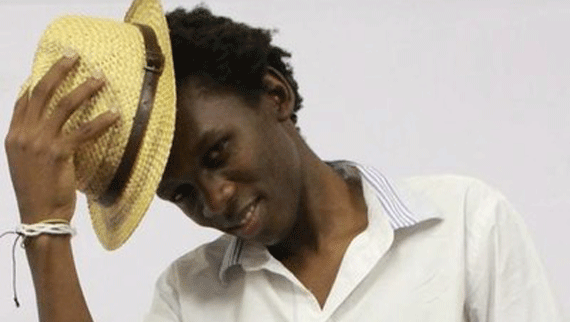
Forget what you heard. Contrary to popular belief, capitalism is about one thing — sharing. Gasp all you want.
Forget what you’ve read. Look at all the world’s most successful and richest people, they share. At a cost price that is.
Bill Gates invented and shared Windows. Steve Jobs dreamed up the must have ‘i’ gadgets. Mark Zuckerberg had us all poking and “walling” about Facebook.
Text is cheap by Jan Koum’s WhatsApp. Aliko Dangote ensures that we sweeten our tea every morning. Strive Masiyiwa is visionary in telecoms for “Eco-chinyi?”
I’m mentioning the most obvious, but if you dig deeper into any industry, you will find that sharing is big business. So what’s the problem? Why are we struggling? It’s very simple — nobody likes to share.
The second problem, as American life coach Iyanla Vanzant puts it is, nobody likes to work.
I was pleasantly surprised when a friend of mine, Munyaradzi Gova, in a chat stated that nobody knows what to work for even where they want to work and share.
Nobody likes to share. Nobody likes to work. Think about this the next time you hear or want to accuse other children of being Illuminati or Satanist or other crazy things because they have money in this world. Not that it doesn’t happen.
- Chamisa under fire over US$120K donation
- Mavhunga puts DeMbare into Chibuku quarterfinals
- Pension funds bet on Cabora Bassa oilfields
- Councils defy govt fire tender directive
Keep Reading
The scourge of black societies all over the world is that we are closed. Closed for business. Closed to new ideas. Closed to new worlds. Closed to other cultures.
Closed to adaptation. Closed to learning – I’m not referring to education. Closed to sharing. Closed to working. This is how and why other races have beaten us in this life business.
First of all blacks don’t care about blacks. We are just not there yet.
Our domestic policies are not effective and it, therefore, follows that our foreign policies suck as well.
Other races know this about us and walk on by. I mean they even enslaved and colonised us to prove it!
When our revolutionary leaders all over Africa — and revolutionary they are — crossed over into the new worlds that they fought for, there was a huge learning curve they had to adjust to.
They were fresh from the bush and then fresh into government offices. Years in the bush. Years in the struggle. All of a sudden, government. What would you have done?
Unfortunately, they thought that the work was done. They forgot to write their own accounts of why they went to the bush, what it was like and what they actually fought for.
The most we young people have is a working or rather general knowledge of history as taught in classrooms. Classes you hardly wait to get out of!
There is no way we can know what colonialism or war feels like. We were not there and hopefully never get to points like that. Do you know what then makes revolutionaries hang on? Memory. They think we will discard their struggle.
They know or at least have a good grasp that we don’t understand why they went to war. They lose sleep about it. It literally keeps them up at night. They think we will forget their struggle.
They are right. We know the struggle. We just don’t know their kind of struggle. The best we do is to read about it in passing when newspapers publish an 800-word obituary. Look at the many presidents of Zambia. Their last testament is that of dying in foreign hospitals.
Unfortunately, memorial holidays are not enough. The schooling and working class – that’s everyone right – just uses those days to get away from the bullies in class or the office. Having books written by foreign journalists is not an option either. As for obituaries . . .
Our revolutionaries need to share their histories themselves — in raw accounts.
That’s the only way for us to know who we are. We know you enjoy seeing us dress up, dance, party, get education and trawl the streets with abandon, Facebook, WhatsApp and tweet away. We appreciate —and this is a thankless world — that you all missed out on youth and that some perished in no man’s land. That is the freedom that you fought for.
However, this is what it also looks like — 90% unemployment, 4 000+ jobs lost year on year. 30 000+ graduates per year. Zimbabwe is listed as number 171 on the “ease of doing business” list.
Three million+ Zimbabweans are dotted all over the world — not really a bad thing. Zimbabweans nearly outdrink the whole world these days. Numbers don’t lie. Open and share this economy.
Sonny Jermain writes in his private capacity. This piece is an excerpt from his book “I Deserve To Be: Selfworth Is A Silent Killer” that is due 2015.










